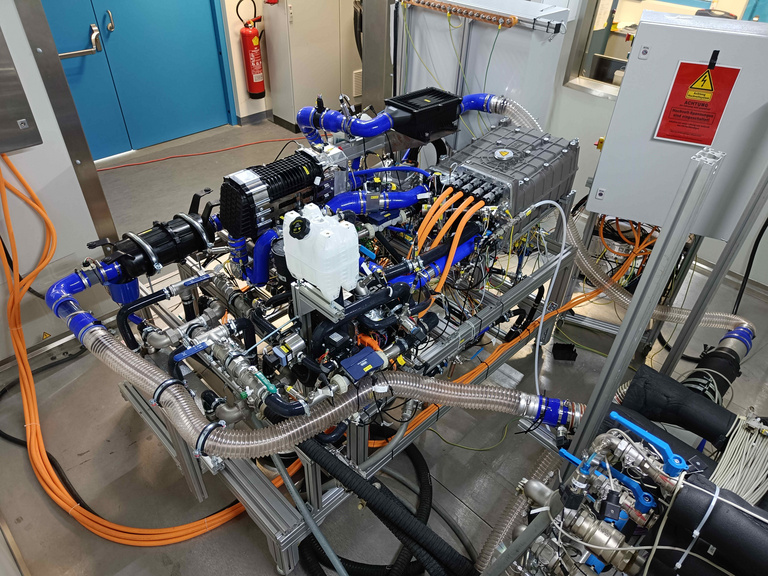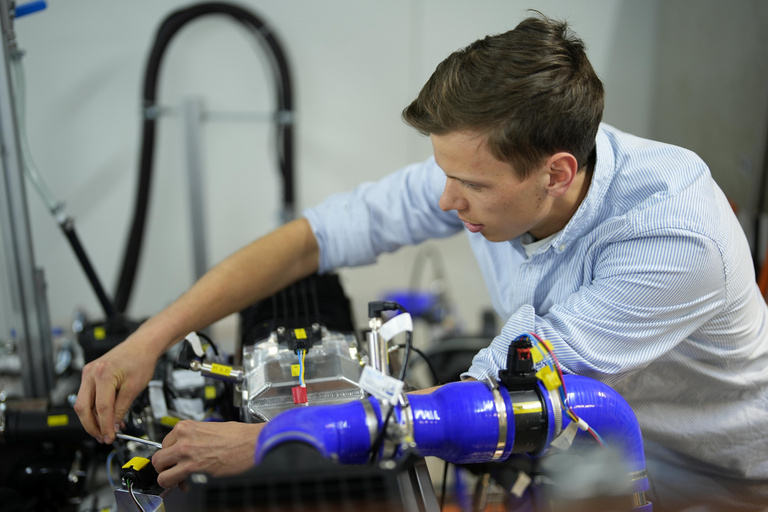HyCentA advances hydrogen mobility with in-house 90 kW fuel cell system testing
This innovative system features a passive hydrogen recirculation design incorporating a two-stage ejector. This enables high efficiency and dynamic performance under realistic operating conditions. These promising results represent a pivotal step towards advancing hydrogen-powered mobility solutions.
Cutting-Edge Testing Infrastructure
The Schönbein test bench is a cornerstone of our testing capabilities and is renowned for its comprehensive features:
-
Supports fuel cell systems up to 160 kW of net power;
-
Equipped with a climatic chamber capable of simulating real-world testing conditions with temperatures ranging from -40°C to 85°C;
-
Incorporates advanced diagnostic tools, including online gas and water analysis, as well as high-precision electrical measurement systems to detect system degradation and optimise performance;
-
Utilises automated testing systems, such as AVL PUMA 2TM, for streamlined and reliable experiments;
-
Offers infrastructure compatibility for testing electrolyser systems, broadening its application scope.
Progress in Mobile Hydrogen Solutions:
In parallel with testing the fuel cell system, a fuel cell electric side-by-side vehicle powered by this system is being assembled and commissioned. The aim of this vehicle is to demonstrate the practicality and efficiency of hydrogen fuel cell technology in real-world mobility applications. More updates on this project will be shared soon.
Driving towards a hydrogen future
The ongoing HyFleet project aims to decarbonise mobility by using hydrogen-powered special vehicle fleets in sectors such as tourism, forestry, and agriculture. The project's goals include reducing hydrogen consumption, lowering system costs and enhancing overall efficiency, thereby paving the way for sustainable, zero-emission transportation solutions.
Looking ahead:
Our advancements exemplify the drive towards next-generation hydrogen technology for stationary and mobile applications. By continuously refining fuel cell systems and testing infrastructure, we aim to accelerate the adoption of hydrogen as a clean energy carrier.
Collaborative efforts for zero-emission mobility
We are collaborating with esteemed partners, including BRP-Rotax, AIT Austrian Institute of Technology, EKPO Fuel Cell Technologies, Fronius International, TU Graz EMS, Black Tree, and Hinterstoder-Wurzeralm Bergbahnen, which strengthens our efforts.
This project is funded by FFG and KLIEN as part of the Zero Emission Mobility 2020 initiative.



